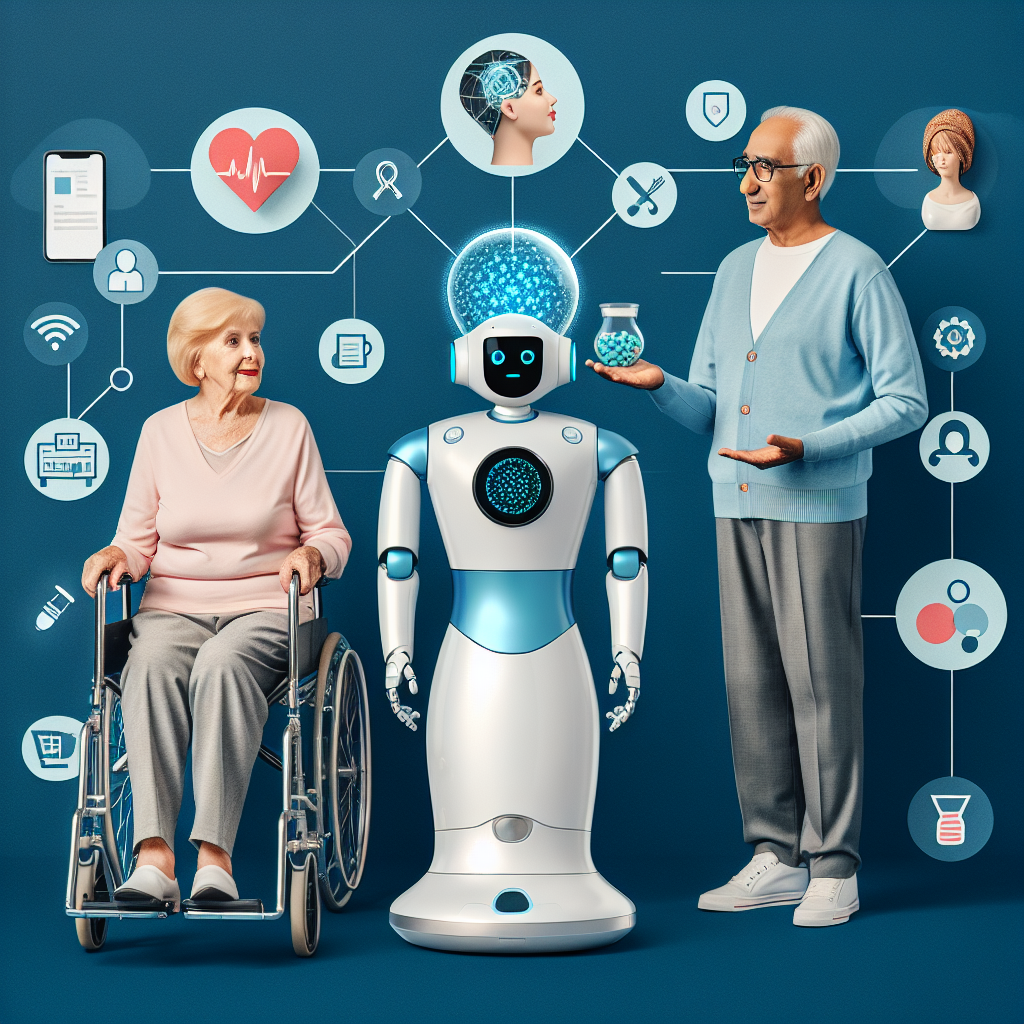AI and Aging: Improving Quality of Life for Seniors through Technology and Personalized Care Solutions
As the global population continues to age, there is an increasing need for innovative solutions to improve the quality of life for seniors. Advances in artificial intelligence (AI) technology have the potential to revolutionize the way we care for the elderly, providing personalized and efficient solutions to help them live independently and comfortably in their later years. In this article, we will explore how AI is being used to enhance the lives of seniors and address some common questions and concerns surrounding this topic.
AI in Healthcare for Seniors
One of the most significant applications of AI in aging is in healthcare. AI-powered systems can analyze vast amounts of data to predict and prevent health issues before they escalate, enabling proactive care for seniors. For example, wearable devices equipped with AI algorithms can monitor vital signs and alert caregivers or healthcare providers of any abnormalities. This real-time monitoring can help prevent emergencies and ensure timely interventions.
AI can also be used to personalize treatment plans for seniors based on their individual health needs and preferences. Machine learning algorithms can analyze a senior’s medical history, lifestyle habits, and genetic factors to recommend tailored interventions, such as medication adjustments or dietary changes. This personalized approach can improve the efficacy of treatments and reduce the risk of adverse reactions.
Additionally, AI-powered telemedicine platforms can connect seniors with healthcare professionals remotely, making it easier for them to access medical advice and consultations without leaving their homes. This can be especially beneficial for seniors with mobility issues or those living in remote areas with limited access to healthcare services.
AI in Home Assistance for Seniors
Another area where AI is making a significant impact on the lives of seniors is in home assistance. Smart home devices equipped with AI technology can help seniors with daily tasks, such as medication reminders, meal planning, and household chores. These devices can also monitor the senior’s activity levels and alert caregivers if there are any deviations from their normal routine, indicating a potential health issue.
AI-powered virtual assistants, such as Amazon’s Alexa or Google Assistant, can provide companionship and entertainment for seniors, keeping them engaged and connected to the outside world. These virtual assistants can answer questions, play music, read audiobooks, and even help with cognitive exercises to keep the senior’s mind sharp.
Furthermore, AI-driven robotics are being developed to assist seniors with mobility issues or disabilities. These robots can help seniors with tasks such as getting out of bed, walking, or even fetching items from another room. They can provide physical support and companionship, reducing the risk of falls and feelings of isolation.
AI in Social Engagement for Seniors
Social isolation is a common issue among seniors, particularly those living alone or in nursing homes. AI technology can help address this issue by providing virtual social engagement opportunities for seniors. Virtual reality (VR) platforms can transport seniors to different places and experiences, allowing them to interact with others and participate in activities they may no longer be able to do in person.
AI-powered chatbots and social robots are also being developed to provide companionship and emotional support for seniors. These virtual companions can engage in conversations, play games, and provide reminders for medication or appointments. They can also offer emotional support and reassurance, helping seniors feel less lonely and more connected to others.
FAQs
Q: Will AI replace human caregivers for seniors?
A: AI technology is intended to augment, not replace, human caregivers for seniors. While AI can assist with certain tasks and provide support, human caregivers play a crucial role in providing emotional and physical care for seniors. AI technology can help make caregiving more efficient and personalized, but it cannot replace the human touch and empathy that caregivers provide.
Q: Is AI technology secure and reliable for seniors?
A: Security and reliability are essential considerations when implementing AI technology for seniors. It is crucial to ensure that the AI systems are designed with robust security measures to protect sensitive data and ensure the privacy of seniors. Additionally, regular updates and maintenance are necessary to ensure the reliability and accuracy of AI algorithms in providing care for seniors.
Q: How can seniors access AI technology for their care?
A: Seniors can access AI technology for their care through healthcare providers, assisted living facilities, or home care agencies that offer AI-powered solutions. Many companies are developing AI-driven products and services specifically designed for seniors, such as wearable devices, smart home assistants, and virtual reality platforms. Seniors can also explore online resources and communities dedicated to AI and aging to learn more about available technologies.
Q: What are the potential challenges of using AI technology for seniors?
A: Some potential challenges of using AI technology for seniors include the risk of technological glitches or malfunctions, the need for ongoing training and support for seniors and caregivers, and the potential for AI algorithms to be biased or discriminatory. It is essential to address these challenges proactively through proper implementation and monitoring of AI systems to ensure the safety and well-being of seniors.
In conclusion, AI technology has the potential to revolutionize the way we care for seniors, providing personalized and efficient solutions to improve their quality of life. By harnessing the power of AI in healthcare, home assistance, and social engagement, we can enhance the independence, safety, and well-being of seniors as they age. It is essential to address common concerns and challenges surrounding AI technology for seniors to ensure its successful implementation and positive impact on the aging population.

